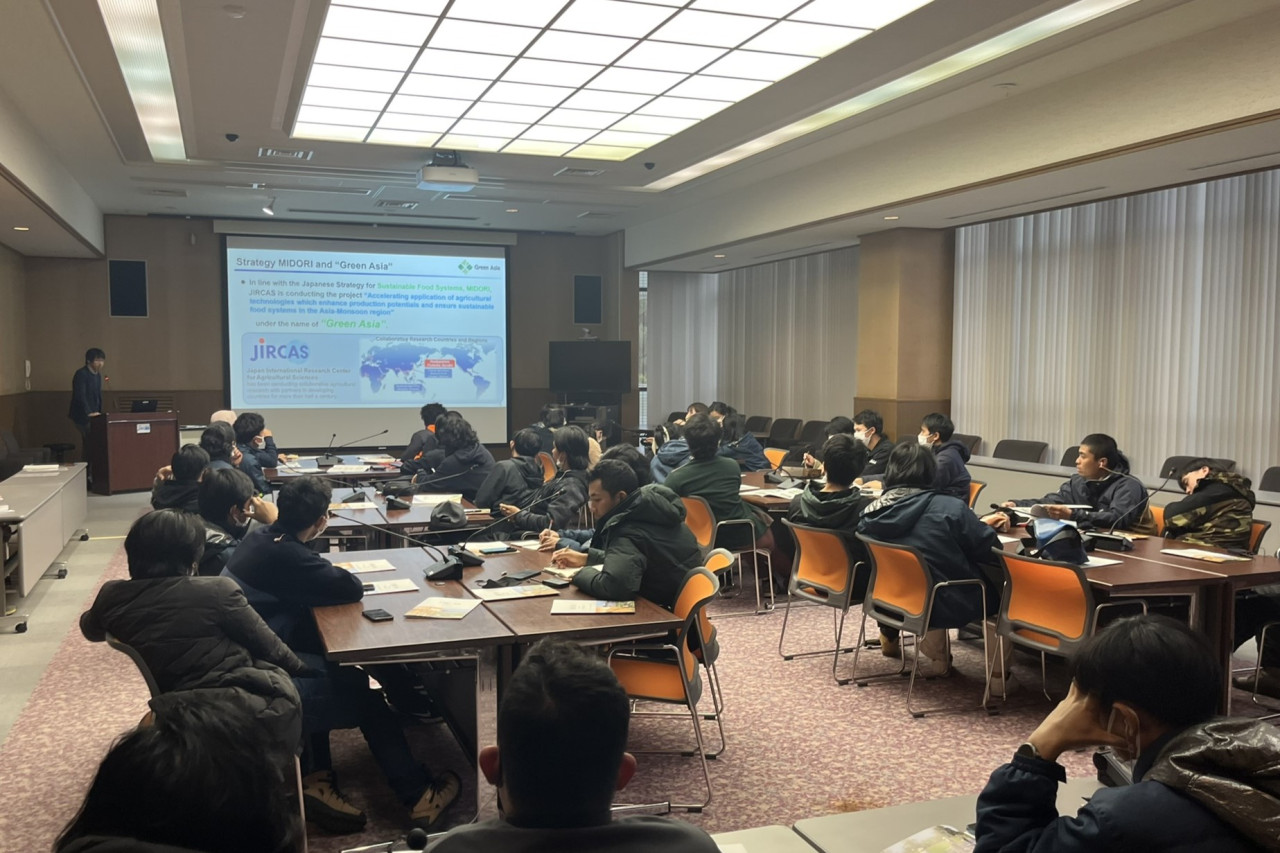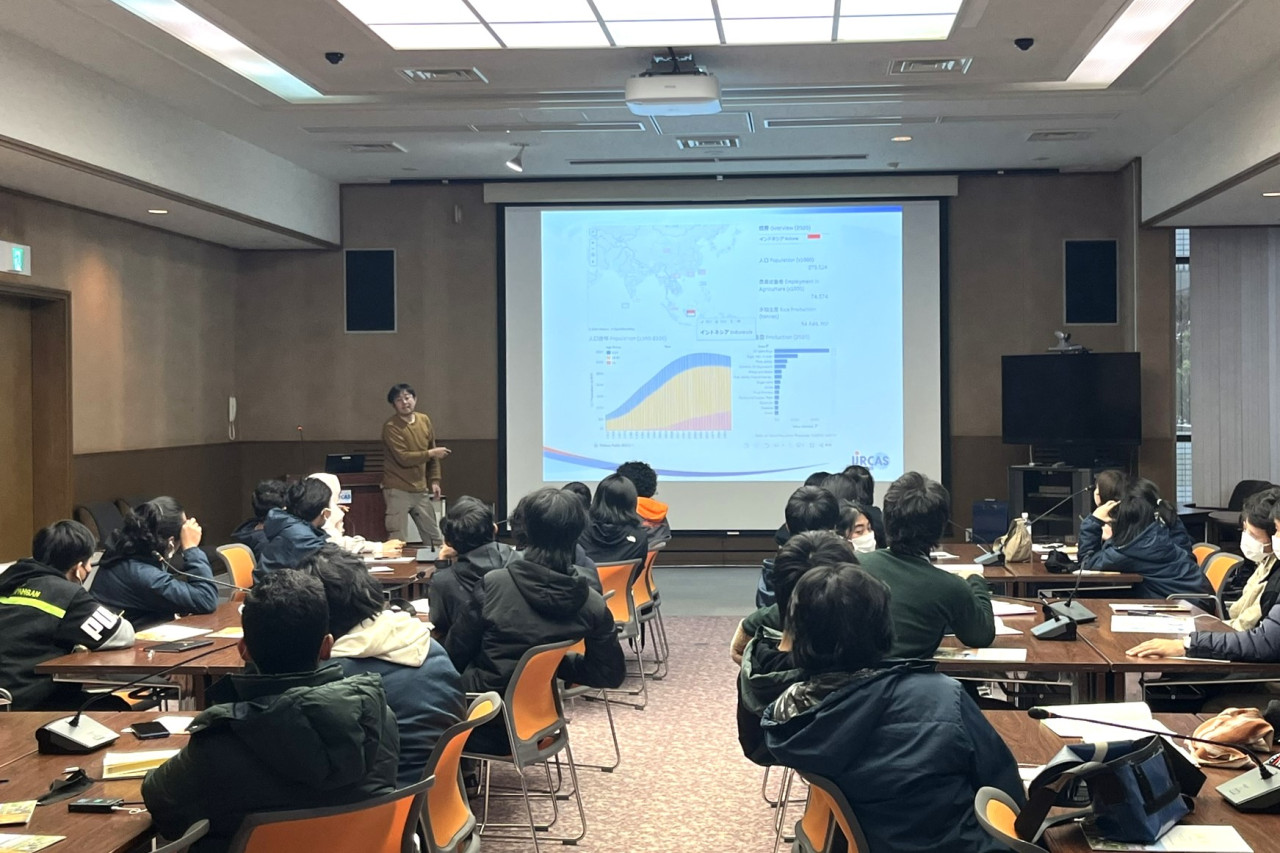On Monday, February 19, 2024, a group of 58 young agricultural trainees from Thailand, Indonesia and the Philippines visited JIRCAS as part of the "Young Farmers Leader Training Program in Japan". This training program, which aims to develop human resources for agricultural youth in ASEAN countries, is implemented by the Ministry of Agriculture, Forestry and Fisheries with support from the Japan Agricultural Exchange Council. The group was divided into two for activities: an indoor lecture introducing JIRCAS research and an outdoor visit to the Hachimandai experimental field.
In the indoor lecture, Senior Researcher KOBAYASHI Shintaro (Social Sciences Division) and Project Leader KANAMORI Norihito (Information and Public Relations Office) gave an introduction to the "Green Asia Project". This initiative promotes the application of agricultural technologies based on green food systems in the Asian monsoon region. The trainees engaged with the presentation and asked many questions. The similarities between Japan and ASEAN countries, such as paddy-based agriculture and a high percentage of small and medium farmers, sparked discussion.
Meanwhile, at the Hachimandai Experimental Field, Senior Researcher IKEURA Hiroshi (Rural Development Division) demonstrated how water can be generated by collecting water vapor in a greenhouse for reuse as irrigation water. Participants were curious about the potential uses of the collected water, including whether it could be suitable for drinking and the materials required for such equipment. Senior Researcher SASAKI Kazuhiro (Biological Resources and Post-Harvest Division) discussed agricultural machinery, focusing in particular on the background of the prevalence of self-propelled combine harvesters in Japan compared to regular combine harvesters commonly used overseas. The differences between these two types of combine harvesters were also highlighted.
The goal is that the technology and knowledge gained from Japanese farmers and research institutes during this training will be effectively applied to agricultural practices in ASEAN countries, contributing to improved food productivity and sustainability.


